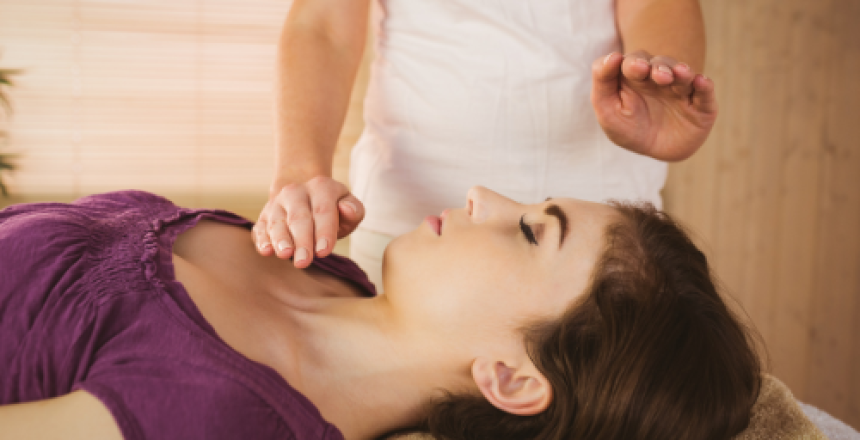
YHD’s founder David Allery was interviewed by Erin Scott on her Believe in Dog podcast. During their chat, he expressed how isolated he felt after he suddenly lost his hearing as an adult. Sometimes people who experience hearing loss can feel misunderstood because others don’t make the effort to “put themselves in your shoes,” try to understand what you are going through, or even be patient when they communicate with you. Moreover, you may feel excluded when you discover that you can’t practice an activity you love because of your situation.
This may feel very discouraging and can exacerbate depression and anxiety. It’s hard to turn off that negative voice in our head so that we can find ourselves in a better state of mind. But at the same time, we need to remember that we can ask for help. We need to remember that we are strong and have the capacity to act, to find the right person or organization that will be supportive of our needs.
There are many ways to lift the emotional weight that we carry. Some examples include walking in the park or doing meditation, but the one I want to focus on today is the holistic art of Reiki. It is meant to supplement and complement traditional medical practice, so we, as always, advise you to seek the opinion of a trusted medical doctor if you have any concerns.

What is Reiki?: Reiki is a Japanese relaxation practice called “Universal Life Force”. The most recent form of Reiki was developed by Mikao Usui in 1922 and introduced in the USA in 1938. This practice contributes to resolving emotional distress, which results in a reduction of pain and tension.
What is the process? During your initial consultation, you will be asked to sign a consent form. The practitioner will explain the process and ask if you have any specific issues lying on your back or the front. If you do, a sitting session will be provided.
What does a usual session consist look like? The session is offered to a fully clothed recipient lying on the treatment table or sitting comfortably. Reiki is provided by non-invasive touch with the practitioner’s hands placed and held in various locations. It can also be done in a completely hands-off manner, where the Reiki master’s hands are held above but not directly on the client’s body. This is routine for certain sensitive parts of the body, like the neck and chest, but can be extended to the entire session. The client’s comfort and feelings of safety during this process are paramount.
What is offered to any patient? On the day of the session, the practitioner will create a relaxing ambiance tailored to the patient. This can include soothing music and an invitation to close their eyes and relax. After the session, the practitioner offers time and space to the recipient to gently return from the deep relaxation. The practitioner will also discuss the experience with the patient and answer any questions the patient feels like talking about.
How does the practitioner connect with the patient? The connection comes from creating a warm, comfortable, and peaceful atmosphere throughout the session and after, as well as an understanding and respect for the patient’s space and time both during and following the session.

Now that you have a general explanation of what Reiki is, I want to introduce you to Koribella. She is a Reiki practitioner in the UK who has been Deaf from birth and is now a spiritual coach and healer.
Koribella had a difficult childhood because she always felt different. She came to realize that she was an empath (someone who feels other people’s energy). Her life changed when she moved to London and started learning various methods of healing to help herself. In this time, she learned Reiki and is now a qualified Reiki practitioner and a Spiritual Counsellor/Coach.
Her primary audience is Deaf people but also Hard-of-Hearing and hearing people. She mentioned they are a community with an open mind on spirituality and a willingness to learn, but she points out a need for more information. Koribella confirmed that she doesn’t experience communication barriers with her clients due to her fluency in British Sign Language (BSL), and the existence of assistive technology for the Deaf & Hard-of-Hearing
I asked Koribella for advice on how Deaf and Hard-of-Hearing people should evaluate a local Reiki practitioner and what characteristics they should look for before booking a Reiki session. This is what she suggested.
- Make sure you explain your additional needs and communication needs. Even when they ask what it is you need to heal from – explain the Deaf/HoH issues you experienced growing up.
- Explain how you would like to communicate during the healing session. Worth letting them know if you feel uneasy and anxious about things like that, especially cause of barriers.
- When you let them know about your barriers and communication needs due to your deaf or HoH – you should be able to tell if they are being sensitive to your basic needs and willing to work with you based on your preferred method of communication.
- Also, it is worth asking them what they will do if anything happens during the healing session. Will they be able to guide you in case anything happens?
- It’s worth checking their reviews and testimony, too.
- What I do – I would check their whole work and leave for a few days. If it’s still on my mind and I feel called to book, then that’s a sign that they are the kind of people I feel comfortable and safe to work with.
If you want to know more about Koribella’s work, I link her Instagram page here, where she posts videos talking about the inner child, self-love, struggles and more.
You can click here to read the full Koribella’s story.
All the best in your journey!
- Tags: alternative support, Deaf and Hard of Hearing, emotional weight, emotions and feelings, feeling missunderstood, holistic treatment, journey, Reiki, Your Hearing Dog

4 thoughts on “How can Reiki helps deaf and hard-of-hearing people?”
I just wanted to drop a note how much I enjoyed this post!
It’s wonderful to find well-researched and insightful content
like this. What you’ve provided is very timely, particularly today when so many people are prioritizing their personal health.
I’ll definitely be linking to this article on my site about massage
devices, as I believe my readers will find it just as helpful.
Keep it up!
Hi, and I thank you for your comment. We appreciate
It’s amazing how Reiki healing treatment can offer support to members of our deaf and hard of hearing community, who, at one point, felt isolated and misunderstood.
I’ve been searching about this inner healing therapy, which I first heard from a close friend, and hearing stories like this makes me all the more interested to try it for the first time.
Thank you, Koribella, for the tips. I’m now down to my final 3 options for a nearby practitioner. May your healing hands bring warmth and light to more lives.
Hi, thanks for your comment, I am glad you found useful and encouraging.